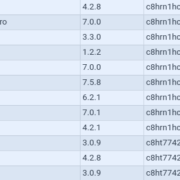Google, a member of the Open Source Security Foundation (OpenSSF), is proud to support the OpenSSF’s Package Analysis project, which is a welcome step toward helping secure the open source packages we all depend on. The Package Analysis program performs dynamic analysis of all packages uploaded to popular open source repositories and catalogs the results in a BigQuery table. By detecting malicious activities and alerting consumers to suspicious behavior before they select packages, this program contributes to a more secure software supply chain and greater trust in open source software. The program also gives insight into the types of malicious packages that are most common at any given time, which can guide decisions about how to better protect the ecosystem.
To better understand how the Package Analysis program is contributing to supply chain security, we analyzed the nearly 200 malicious packages it captured over a one-month period. Here’s what we discovered:
First, it downloaded a backdoor from GitHub and installed it into the Discord electron client.
The packages we found usually contain a simple script that runs during an install and calls home with a few details about the host. These packages are most likely the work of security researchers looking for bug bounties, since most are not exfiltrating meaningful data except the name of the machine or a username, and they make no attempt to disguise their behavior.
These dependency confusion attacks were discovered through the domains they used, such as burpcollaborator.net, pipedream.com, interact.sh, which are commonly used for reporting back attacks. The same domains appear across unrelated packages and have no apparent connection to the packages themselves. Many packages also used unusual version numbers that were high (e.g. v5.0.0, v99.10.9) for a package with no previous versions.
Conclusions
These results show the clear need for more investment in vetting packages being published in order to keep users safe. This is a growing space, and having an open standard for reporting would help centralize analysis results and offer consumers a trusted place to assess the packages they’re considering using. Creating an open standard should also foster healthy competition, promote integration, and raise the overall security of open source packages.
Over time we hope that the Package Analysis program will offer comprehensive knowledge about the behavior and capabilities of packages across open source software, and help guide the future efforts needed to make the ecosystem more secure for everyone. To get involved, please check out the GitHub Project and Milestones for opportunities to contribute.




